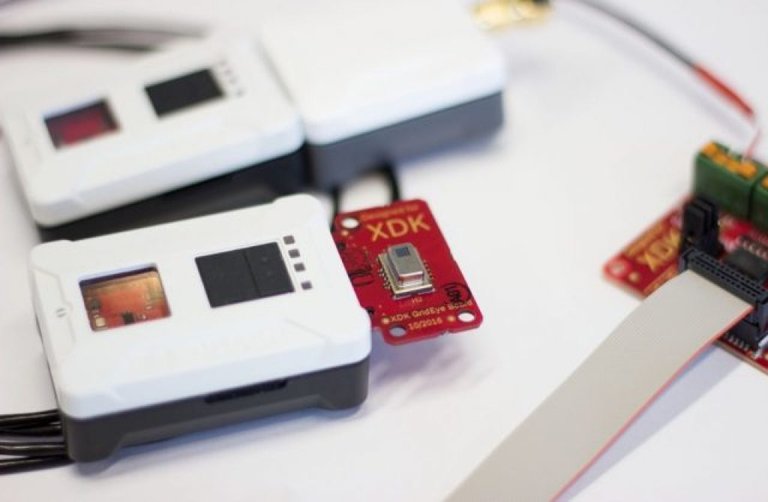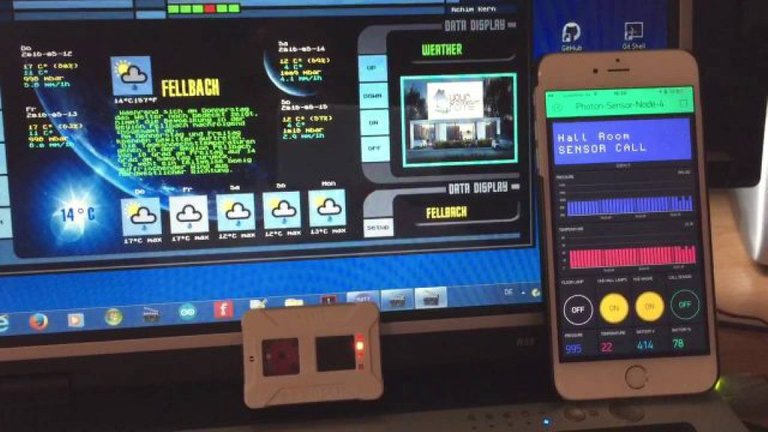BOSCH’s New IoT Adaptor XDK110 And How It Is Related To IOTA (MIOTA)

After the recent BOSCH x IOTA (MIOTA) partnership, where the first invested heavily into the IOTA Foundation, not only economically but also with brain power, lending Dr. Hongquan Jiang, partner of Robert Bosch Venture Capital (RBVC) to the IOTA Foundation’s Advisory Board, BOSCH didn’t had to wait long to launch their next commercial IoT hardware, the XDK-110.
The XDK110 is a wireless sensor device to enable rapid prototyping of sensor-based products and applications for the internet of things (IoT). It thereby allows users a step in-between the first hardware prototype and series production, or simply as the first compact prototype. The device was built in a way that Bosch can easily adapt the product for mass production and the users’ unique sensor requirements. The XDK110 creates the opportunity for users to try out more advanced programming on the device itself to realize a sensor which processes data and reports events instead of simply transmitting raw data.
The product XDK110 consists of the XDK110 sensor device, comes with an SW development environment called the XDK Workbench as well as access to the XDK developer community. XDK110 allows the user the ability to experiment with different ideas, with different sensor measuring principles, coupled together with different communication technologies. XDK110 thereby allows the user to better understand their end solution requirements, but also their potential series product before having to invest substantial sums of engineering development activity.
XDK110 is built using a modular hardware and software platform, meaning that mass production of variations of XDK is easy, scalable and cost-effective for the user when moving forward with their idea.
This universal programmable sensor device & prototyping platform for any IoT use case you can imagine wears built-in sensors including an Accelerometer, an Acoustic Sensor, a Digital Light Sensor, a Gyroscope, a Humidity Sensor, a Magnetometer, a Pressure Sensor, and a Temperature Sensor all in one single device.
So how could IOTA (MIOTA) play its part, starting with BOSCH’s first IoT based hardware after the big partnership? We’re taking a speculative dive into possible scenarios where IOTA as a cryptocurrency, The Tangle as a network and IOTA Foundation‘s Data Marketplace could be involved with BOSCH‘s XDK project and other similar projects in the near future.
“There is great potential through Distributed Ledger Technologies to make each IoT project more secure, efficient and provide increased transparency to consumers of IoT solutions,” says Dennis Boecker, Bosch IT global innovation lead and responsible for the Chicago Connectory, an Internet of Things (IoT) innovation space founded by Bosch and 1871. “Our goal is to increase the adoption of Distributed Ledger Technology throughout the Midwest region as IoT solutions and business models continue to grow.”
“IOTA and Bosch have been in dialog about the convergence between the Internet-of-Things and IOTA’s Distributed Ledger Technology since late 2015 and built up a strong relationship,” says David Sønstebø, founder of the IOTA Foundation. “Our official collaboration on this laboratory for exploring this overlap cements both entities’ goal of enabling an open and secure IoT ecosystem.”
The main product of the IOTA Foundation to date is The Tangle, an open source Distributed Ledger Technology (DLT) that goes beyond blockchain. The IOTA Tangle resolves the scalability challenges of existing blockchain technologies and makes it possible to transfer value without transaction fees. IOTA is uniquely suited for business model innovation in the emerging Machine-to-Machine (M2M) economy.

IOTA has a strong ecosystem, which is one of the largest in the DLT community. Corporations, startups, and independent developers are utilizing the technology to create new applications in a diverse number of areas, ranging from the Internet of Things to Smart Cities, Mobility, eHealth and even Web Payments.
We see both entities being serious and focused on working together in order to upgrade and simplify the whole concept of The Internet Of Things (IoT) to the average consumer.
One of the most anticipated, and probably one of the most unique, modules for IOTA is Masked Authenticated Messaging. MAM makes it possible for sensors and other devices to encrypt entire data streams and securely anchor those into the IOTA Tangle in a quantum proof fashion. Only authorized parties will be able to read and reconstruct the entire data stream. In essence, it works a lot like a radio where only those with the right frequency can listen in, in MAM only those with the right channel IDs get access to the data. We can expect many more announcements about MAM, as well as its applicability to industries such as Supply Chain, Banking and Industry 4.0.
Another possible solution using both the XDK 110 and The Tangle, as well as IOTA as a medium would be IoT based intel exchange regarding specifics preset to be read, analyzed and exchanged between XDK 110 adaptors. For example, a construction company could enter The Tangle and purchase crucial information about a geolocation monitored by one or a node of XDK adaptors. The information exchange will be accurate, immediate and up to date. Most important it could be paid for using The Tangle’s native currency, which is no other than IOTA itself.
The information exchange could be extended to the Data Marketplace where various buyers, both Corporate affiliates, and individuals could request desired information gathered by the XDK Network build on The Tangle and again pay for it using IOTA.
The Foundation’s Data Marketplace has already proven its functionality in an earlier private beta where participants included Microsoft, Samsung, Orange, Volkswagen among decades of other industrial key players.
We know that this is just the beginning of this long-anticipated relationship between the two parties and more practical use cases will keep showing up in the next months. Until then, let me know what you guys think about BOSCH’s XDK project and how else you think it could be used in the IoT?
Hi! I am a robot. I just upvoted you! I found similar content that readers might be interested in:
https://theindependentrepublic.com/2018/01/27/boschs-new-iot-adaptor-xdk110-and-how-it-is-related-to-iota-miota/